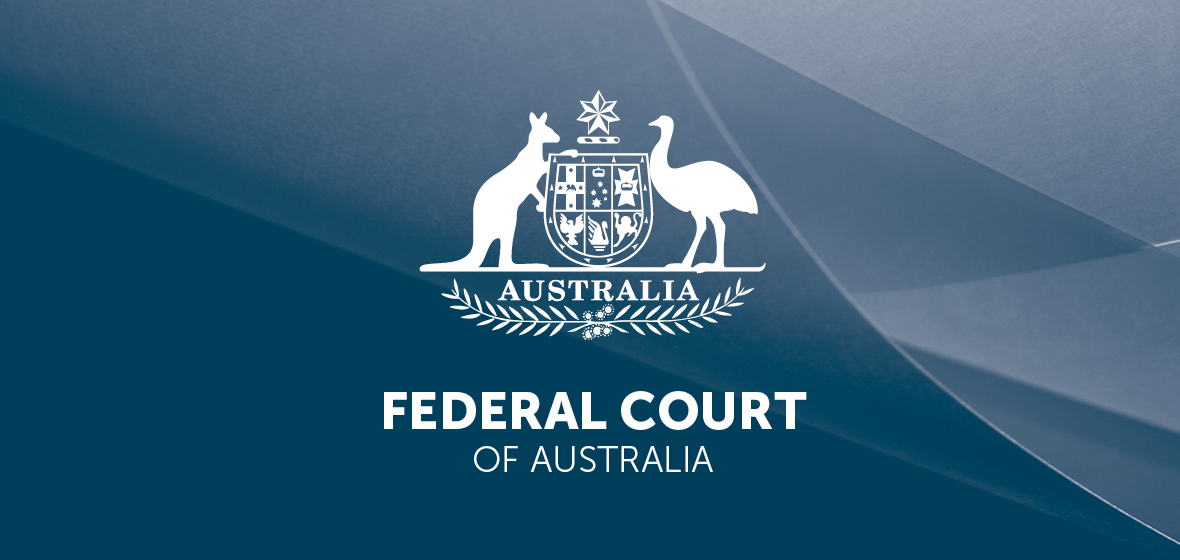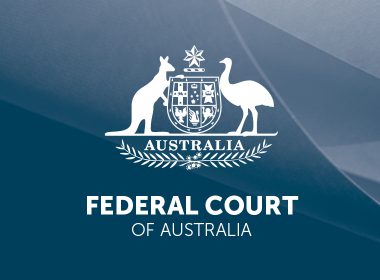Key decisions
- Allianz Australia Insurance Limited v Uniting Church in Australia Property Trust (NSW) (No 2) [2025] FCAFC 94 (Michael Morgan)
- Snow v Judicial Registrar Birchall [2025] FCA 885 (Vincci Chan)
PRACTICE AND PROCEDURE – entitlement of ‘successful’ party to costs of proceedings – appellant achieved substantive success – respondent achieved minor success – which party entitled to claim ‘success’ in the proceedings – adjustment made to accommodate limited degree of success
The case of Allianz Australia Insurance Limited v Uniting Church in Australia Property Trust (NSW) (No 2) [2025] FCAFC 94 (‘Allianz v UCPT No 2’) is a decision made by the Federal Court of Australia Full Court (‘FCAFC’) which provides useful guidance on two questions concerning the award of costs following a successful appeal. They are:
- whether a successful appellant should be awarded their costs of the hearing at first instance in addition to their costs of the appeal; and
- if the answer to the first question is yes, whether the costs of the hearing at first instance include costs incurred following an order by the primary judge for determination of additional matters to be referred to a referee.
Procedural history
On 7 February 2025, the FCAFC delivered judgment in Allianz Australia Insurance Limited v Uniting Church in Australia Property Trust (NSW) [2025] FCAFC 8 (‘Allianz v UCPT (FC)’) in which the appellant – Allianz Australia Insurance Limited (‘Allianz’) – was successful against the respondent – Uniting Church in Australia Property Trust (NSW) (‘UCPT’). Consequently, paragraphs 3–21 of the orders and declarations made by the Federal Court of Australia in the decision at first instance – Uniting Church in Australia Property Trust (NSW) v Allianz Australia Insurance Limited (Liability Judgment) [2023] FCA 190 (‘UCPT v Allianz’) – were set aside.
Issue for determination
In Allianz v UCPT (FC), the FCAFC ordered UCPT to pay Allianz’s costs of the appeal. The FCAFC, however, reserved the question of whether UCPT should be ordered to pay Allianz’s costs of the hearing at first instance until such time as UCPT had been afforded an opportunity to make submissions. Additionally, there was a further question as to whether the costs of the hearing at first instance include costs incurred following a decision by the primary judge to refer specific matters to a referee for determination.
Legal principles
In Allianz v UCPT No 2, the FCAFC spent some time examining the relevant legislative powers and case law principles concerning the award of costs to a successful appellant.
The power to award such costs is conferred on the FCAFC by section 43(2) of the Federal Court of Australia Act 1976 (Cth) which provides that ‘[e]xcept as provided by any other Act, the award of costs is in the discretion of the Court or Judge’. As noted by the FCAFC in Allianz v UCPT No 2, s 43(2) confers on the court a ‘broad and unfettered discretion to award costs of the proceeding’ (at [3]).
As further noted by the FCAFC, the ‘discretion is to be exercised judicially … having regard to the justice of the particular circumstances of the case involved’ (at [3]).
As a general proposition, a party that is successful on appeal is entitled to the costs it incurred at first instance (Allianz v UCPT No 2 (at [4]) citing Gladstone Park Shopping Centre Pty Ltd v Wills (1984) 6 FCR 496, 505, 509). Further, the FCAFC also noted that:
‘… other than in exceptional cases, a successful applicant will not be deprived of its costs simply because it failed on some issues, and courts will not usually attempt to differentiate between those issues when exercising the discretion as to costs’ (Les Laboratoires Servier v Apotex Pty Ltd (2016) 247 FCR 61 (‘Apotex’), [300]-[303] cited in Allianz v UCPT No 2 at [24]).
‘… other than in exceptional cases, a successful applicant will not be deprived of its costs simply because it failed on some issues, and courts will not usually attempt to differentiate between those issues when exercising the discretion as to costs’.
Decision and findings of the FCAFC
The FCAFC made orders for UCPT to pay Allianz 85 per cent of its costs in the hearing at first instance, UCPT v Allianz, and that such costs would include the costs of the reference ordered by the primary judge on 27 April 2023.
Allianz as the successful party
The FCAFC found that Allianz should be considered the successful party on appeal. This was despite the fact that UCPT did have ‘some small measure of success in the proceedings’ given that it was ‘relatively minor in comparison to that which it failed to achieve’ (at [18]).
Reduction for abandoned defence of non-disclosure
The FCAFC found there should be no deduction in costs payable by UCPT following the decision by Allianz to abandon its non-disclosure defence (at [25]). In reaching this decision, the FCAFC noted the following:
- The work carried out by UCPT for the ‘non-disclosure defence’ was important as it ‘shared a common substratum of fact with the “s 40(3) defence” in that the decisive issue, on either case, was who knew what when’ (at [21]). Consequently, UCPT’s work on the ‘non-disclosure defence’ was not rendered ‘nugatory’ (at [21]); and
- Adapting the principle from Apotex (n 9) that a successful applicant should not be deprived of its costs because it was unsuccessful on some issues, the FCAFC held that the principle should equally apply to a successful appellant on appeal who, following the appeal, had in effect become a successful defendant. Consequently, Allianz being a successful appellant was entitled to its costs despite the fact that it did not advance the ‘non-disclosure defence’ (at [24]-[25]).
Costs of the references
Finally, the FCAFC held that ‘the costs of the references are costs of the proceedings before the primary judge’ and there is no reason why the reference costs ‘would not be subsumed by an order that Allianz have its costs of those proceedings’ (at [28]). The fact that the reference costs are incurred following the decision of the primary judge is irrelevant as the reference costs ‘are, and remain, costs of [the] action’ (at [28]).
Additionally, the FCAFC acknowledged the fact that Allianz opposed the making of the reference orders in circumstances where they submitted that such costs would be wasted if Allianz succeeded on appeal (at [29]).
Practice and Procedure – reasonable apprehension of bias – application for judicial review of decision of registrar to refuse to accept documents for filing – where proposed ground of appeal sought to criticise conduct of an organisation of which the judge had been involved
The case of Snow v Judicial Registrar Birchall [2025] FCA 885 (McDonald J) involved a judicial review application filed by the plaintiff, Mr Snow, who challenged a registrar’s decision not to accept for filing his application for leave to appeal against orders made by O’Callaghan J on 27 May 2025 (‘Refused Application Documents’). The registrar had refused the filing (pursuant to r 2.26 of the Federal Court Rules 2011 (Cth)) on abuse of process grounds, as the registrar believed the Court had no jurisdiction to hear the appeal.
The review proceedings were set down before McDonald J. Before the first case management hearing, Mr Snow raised concerns about the possibility of judicial bias due to His Honour’s prior involvement with JusticeNet SA, a not-for-profit organisation focused on providing pro bono legal representation.
The Refused Application Documents contained details of one of Mr Snow’s proposed grounds of appeal (‘Ground 17’), which, if he were permitted to argue, would expose criticisms of certain alleged acts or omissions on behalf of JusticeNet SA.
MacDonald J disclosed his past involvement with JusticeNet SA, including being vice president in 2023 and 2024, however did not recall being involved in any matters concerning Mr Snow. His Honour had been a member of the organisation’s management committee between 2020 and 2024 but had not been involved in the day-to-day activities of the organisation or its decisions; and did not recall ever being aware of Mr Snow’s name or legal proceedings (at [10]).
Mr Snow raised concerns that, due to the McDonald J’s association with JusticeNet SA, there might be a reasonable apprehension of bias—specifically, that His Honour might be inclined to avoid public scrutiny or criticism of the organisation, particularly regarding matters related to when His Honour was involved in its management (at [9]). Mr Snow did not allege actual bias.
The Court’s findings
McDonald J
His Honour decided to recuse himself from the proceedings. In doing so, His Honour applied the principles established by the High Court in Charisteas v Charisteas [2021] HCA 29 (at [11]) which set out a two-step process for ascertaining the reasonableness of the asserted apprehension of bias, namely: 1. identification of what might lead a judge to decide a case other than on its legal and factual merits; and 2. articulation of a logical connection between that matter in 1. and the feared departure from the judge deciding the case on the merits (at [11]-[14]).
In relation to 1, the matter was McDonald J’s association with JusticeNet SA including his involvement in the organisation’s management committee (at [12]). In relation to 2, the connection was, as a person involved in the management of JusticeNet SA, His Honour may prefer that there not be public scrutiny, criticism or adverse comment of that organisation. The consequences of the dismissal of the judicial review application would be that Mr Snow would not be able to rely on Ground 17 in any following appeal proceedings (at [13].
Accordingly, His Honour was satisfied that, even though he was not knowingly involved in any matter concerning Mr Snow, ‘a fair-minded lay observer might reasonably apprehend that a judge who had been involved in the management of JusticeNet SA at the time when the acts or omissions about which Mr Snow seeks to complain are alleged to have occurred might decide Mr Snow’s application otherwise than on its legal merits’ (at [15]).




